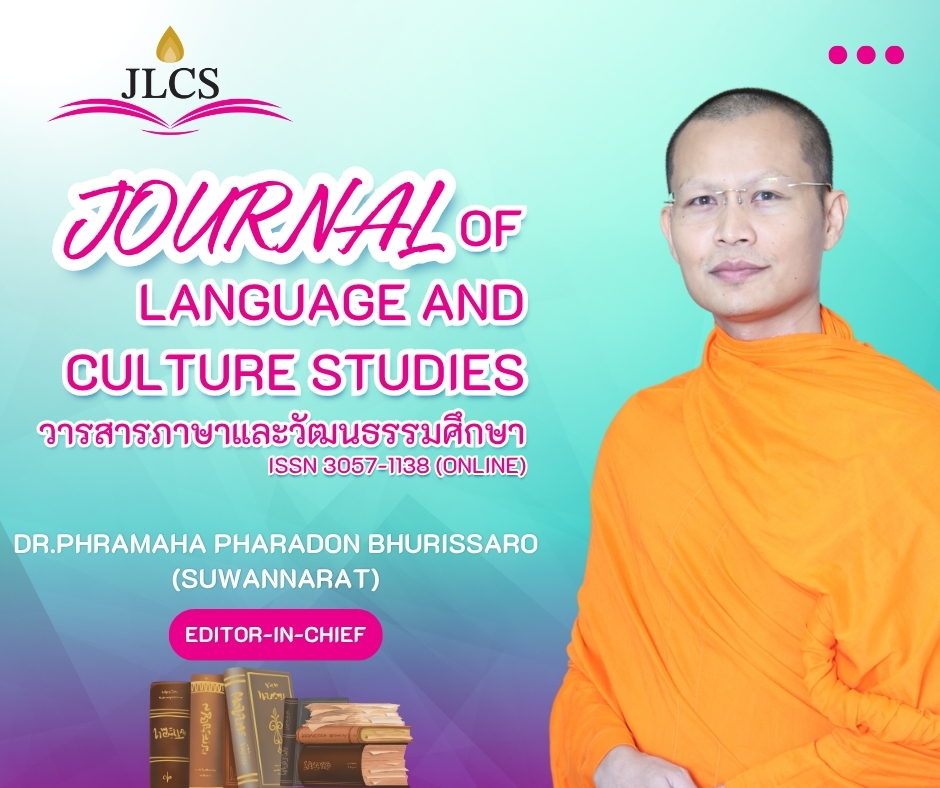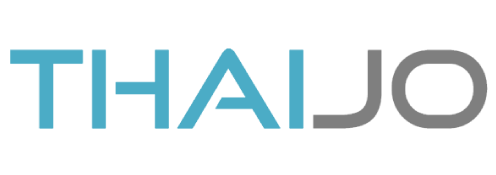About the Journal
![]() International Standard Serial Number:
International Standard Serial Number:
ISSN 3057-1138 (Online)
![]() Objectives and Scope of the Journal
Objectives and Scope of the Journal
The Journal of Language and Culture Studies is a peer-reviewed academic journal dedicated to the dissemination of high-quality research articles and scholarly works in the fields of language and linguistics, literature and literary theory, communication, cultural studies, and religious studies, as well as other related areas in the humanities and social sciences. The journal aims to serve as an interdisciplinary platform for academics, researchers, and scholars, as well as interested readers, fostering the exchange of knowledge and contemporary perspectives that contribute to academic advancement and benefit society.
JLCS accepts submissions in the following areas:
Language and Linguistics: Language, language learning and teaching, language skills development, general linguistics, applied linguistics, sociolinguistics, psycholinguistics, corpus linguistics, translation studies, and discourse analysis.
Literature and Literary Theory: Classical literature, contemporary literature, comparative literature, literary criticism, cultural narratives, literature in contemporary media, and digital literature.
Communication: Interpersonal communication, intercultural communication, digital communication and social media, discourse analysis in media, and language use in cultural communication.
Cultural Studies: Cultural heritage, cultural preservation, cultural exchange, cultural identity, globalization and cultural change, digital culture, media culture, and cultural tourism.
Religious Studies: Beliefs, faith, philosophy, rituals, comparative religion, religion and culture, various dimensions of Buddhist studies, the dissemination of Buddhism, the role of religion in contemporary society, and religion in digital media.
Other Related Areas: Sub-subject areas within the humanities and social sciences that are relevant to language and cultural studies, such as education, history, and more.
![]() Types of Published Articles
Types of Published Articles
The journal accepts academic and research articles.
1. An academic article presents analysis, critique, and synthesis of knowledge, outlining the background, objectives, and approaches to problem-solving that demonstrate relevant theoretical frameworks. Articles should discuss existing or newly proposed theories supported by credible scholarly opinions, maintain neutrality, and contribute to the advancement of knowledge in the fields of language and linguistics, literature and literary theory, communication, cultural studies, religious studies, and other related areas. The length should not exceed 8,000 words (excluding references).
2. A research article presents original research that demonstrates innovation and relevance to the fields of language and linguistics, literature and literary theory, communication, cultural studies, religious studies, and other related areas. Research articles must be clear, concise, and novel, with a well-structured format and a concluding discussion of research findings. The length should not exceed 8,000 words (excluding references).
![]() Publication Frequency
Publication Frequency
The Journal publishes two issues per year (Start from 2026 onwards) :
Issue 1: January – March
Issue 2: April - June
Issue 3: July - September
Issue 4: October - December
![]() Peer Review Policy
Peer Review Policy
Journal of Language and Culture Studies strictly abides by the codes of the Thai-Journal Citation Index Centre (TCI) and undergoes an evaluation process by two expert reviewers through double-blind peer review.
![]() Language Usage
Language Usage
The Journal accepts manuscripts in both Thai and English, focusing on subjects within its scope and adhering to academic writing standards.
![]() Publication Fees
Publication Fees
The journal charges a one-time publication fee only after a manuscript has been accepted for publication. Payment is required once per article, and an official receipt will be issued by the university for every submission. The publication fees are as follows:
1. Academic Articles: 3,000 Thai THB per article.
2. Research Articles: 4,000 Thai THB per article.
Note:
- Please make the payment only after receiving the payment request email from the journal.
- Payments must be made only to TMBThanachart Bank (ttb), Account No. 231-2-91026-4, Account Name: วารสารภาษาและวัฒนธรรมศึกษา มจร. This is the sole official account for payment.
- Publication fees are non-refundable under any circumstances.
![]() Free Access Policy
Free Access Policy
This journal aims to provide access to the areas of Humanities and Social Sciences and sub-subjects of language and linguistics, literature and literary theory, communication, cultural studies, religious studies, and other related areas. It seeks to disseminate research to a wide audience and is open to all interested readers, meaning that all published articles are freely available online to anyone, anywhere in the world.
![]() Ownership and Management
Ownership and Management
The Graduate Program, Department of Thai Language, Faculty of Humanities, Mahachulalongkornrajavidyalaya University, is the owner of the Journal of Language and Culture Studies. The process and governance of the journal can be achieved through a variety of funding sources. All financial support allows the journal to maintain a high standard of publication. All submissions undergo a rigorous review process by qualified experts.
![]() Publisher
Publisher
Journal of Language and Culture Studies is an official peer-reviewed journal and is supervised by the Graduate Program, Department of Thai Language, Faculty of Humanities, Mahachulalongkornrajavidyalaya University, Thailand.
![]() Copyright and Licensing
Copyright and Licensing
The journal prioritizes copyright protection and licensing to safeguard authors' rights and ensure appropriate dissemination. The policy emphasizes openness, accessibility, and source attribution. Authors retain copyright ownership of their work, and articles are published under the Creative Commons Attribution License (CC BY), allowing sharing, adaptation, and proper attribution. Authors are encouraged to publish under the CC BY license, permitting broad reuse, distribution, and adaptation with appropriate attribution. The journal supports posting articles in personal repositories, with institutional and funding constraints. Authors are responsible for explaining copyright terms and licenses, empowering them with knowledge of their rights and obligations. This policy delineates collaborative work boundaries, openness, and shared responsibility, ensuring authors and research communities retain intellectual property rights.
![]() Revenue Sources
Revenue Sources
The journal receives partial financial support from the Graduate Program, Department of Thai Language, Faculty of Humanities, Mahachulalongkornrajavidyalaya University, and publication fees from article submissions.
![]() Advertising and Direct Marketing
Advertising and Direct Marketing
The journal engages in direct marketing through various channels, including email, its official Facebook page, and the ThaiJo website, to facilitate communication and promote the journal while upholding the highest ethical standards. We directly connect with researchers and scholars in relevant areas to ensure accurate, clear, and comprehensive communication regarding the journal’s mission and characteristics. The journal prioritizes compliance with legal requirements, transparency, informed consent, and the protection of personal data. Our practices are regularly reviewed and updated to maintain adherence to applicable regulations. We are committed to conducting direct marketing with integrity and responsibility—benefiting scholars, fostering academic collaboration, and disseminating distinguished research in a transparent manner.








